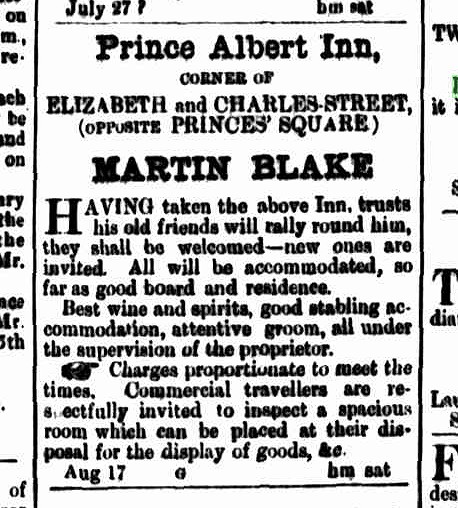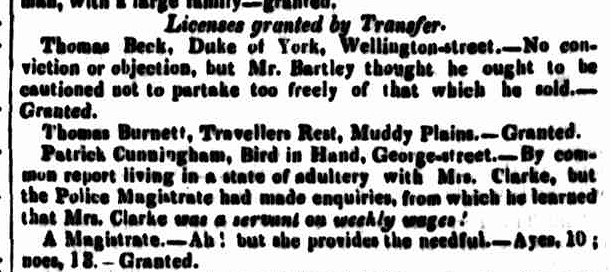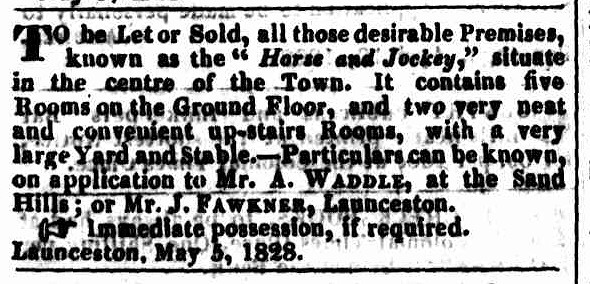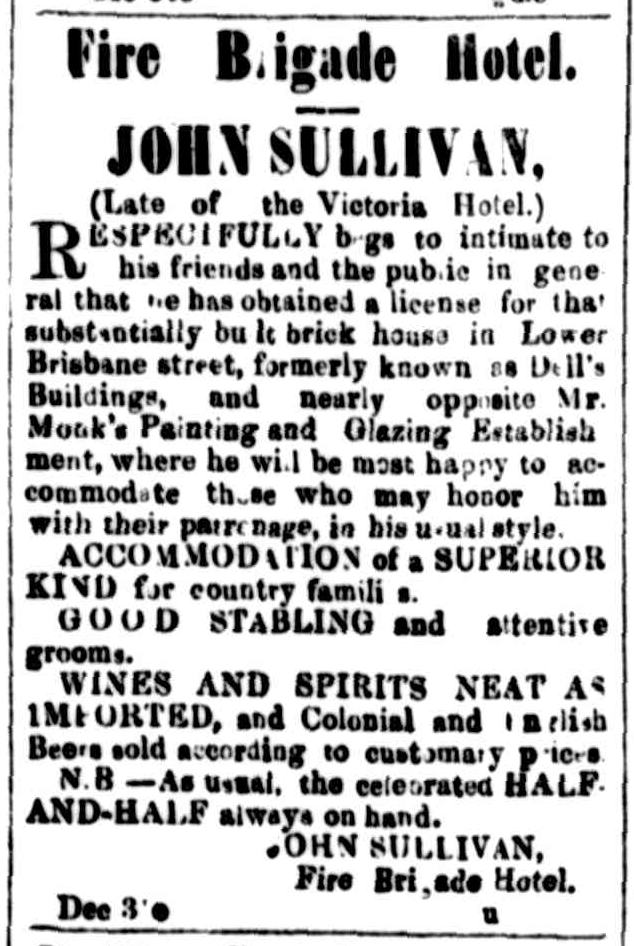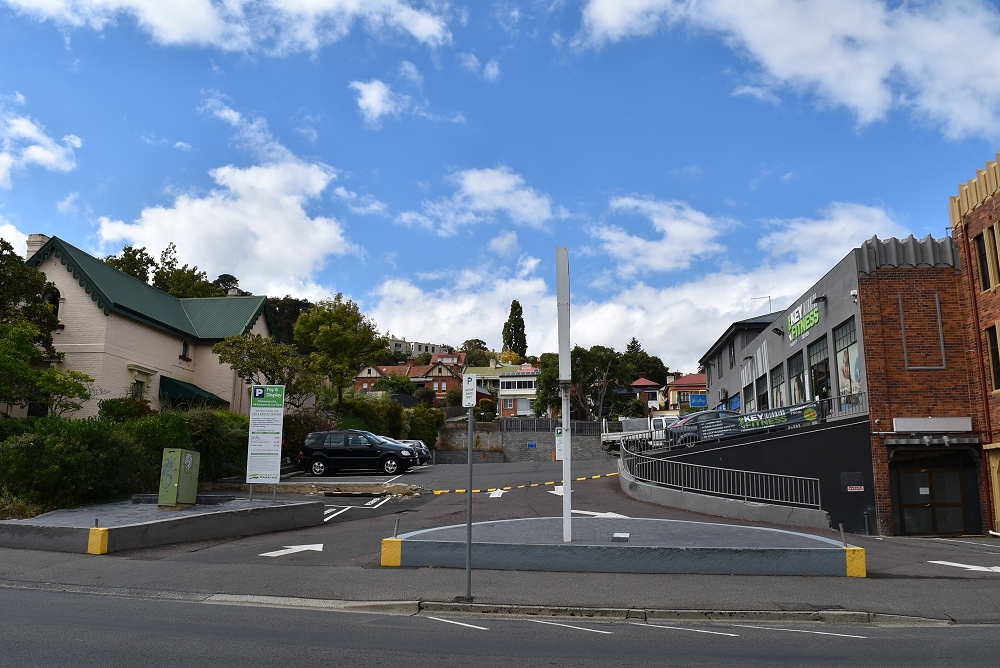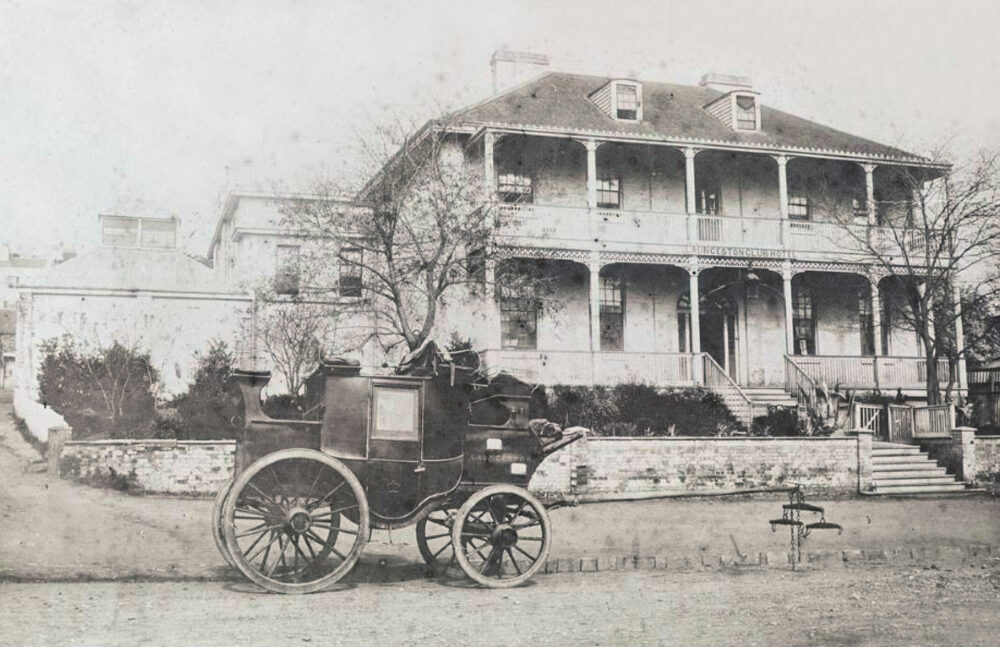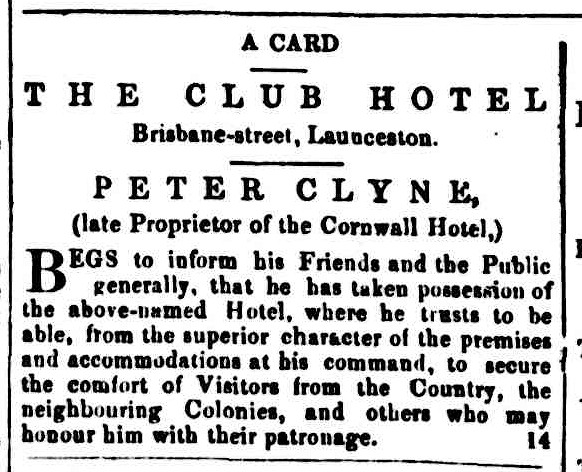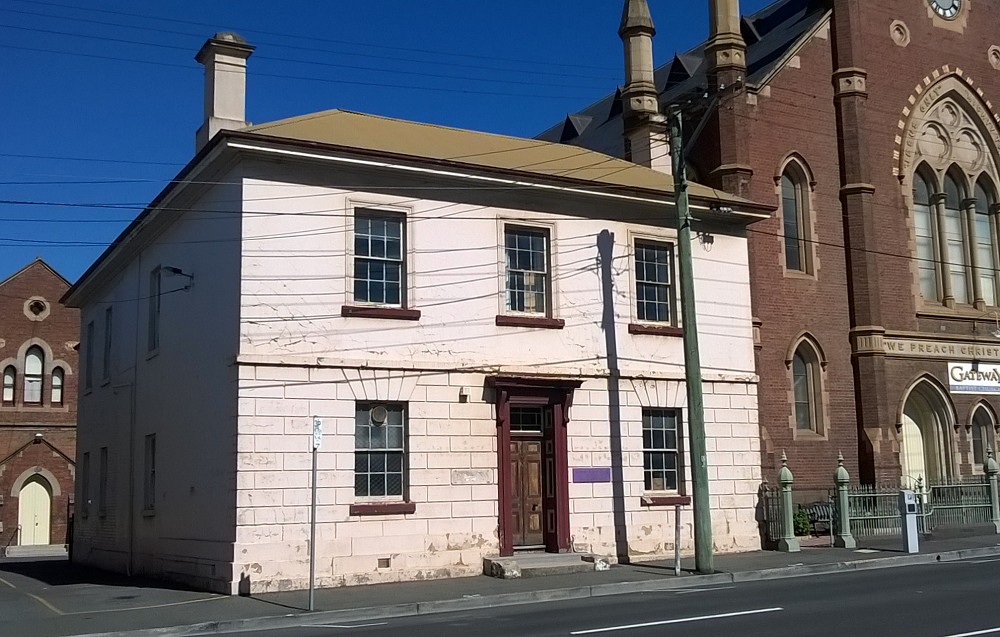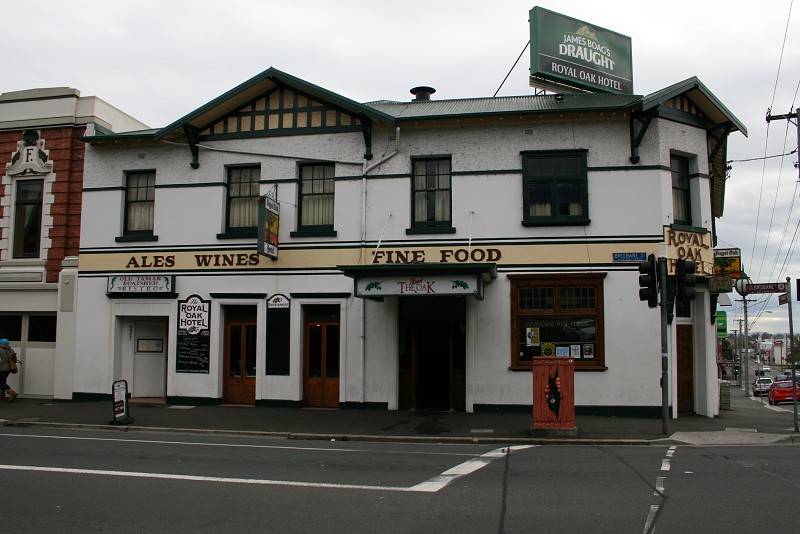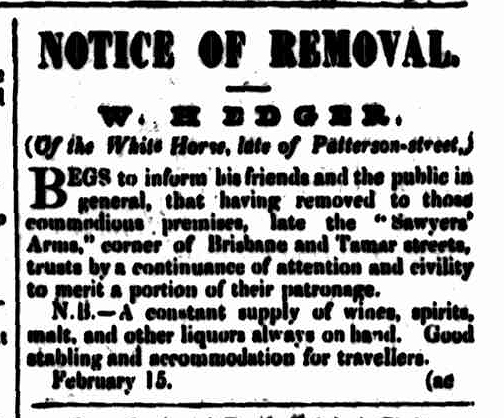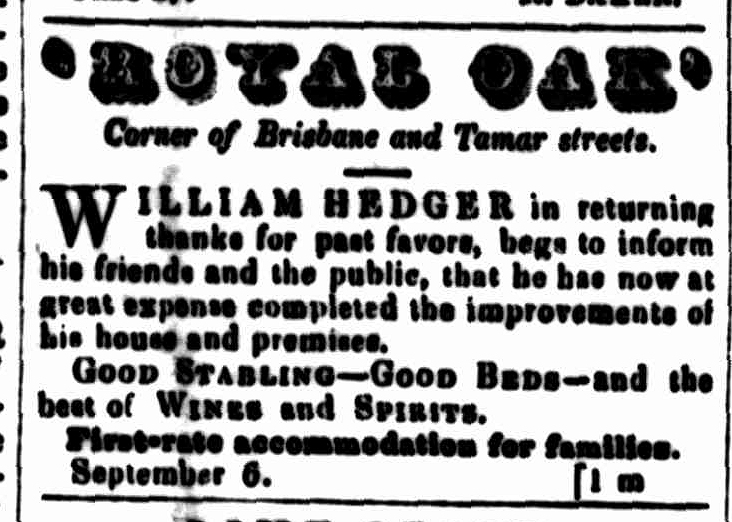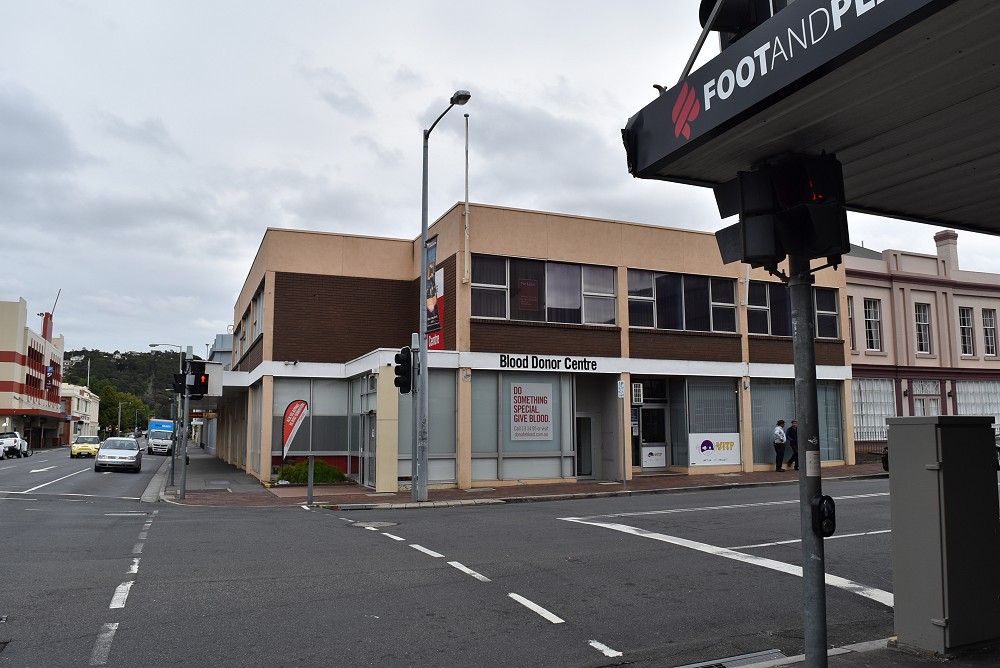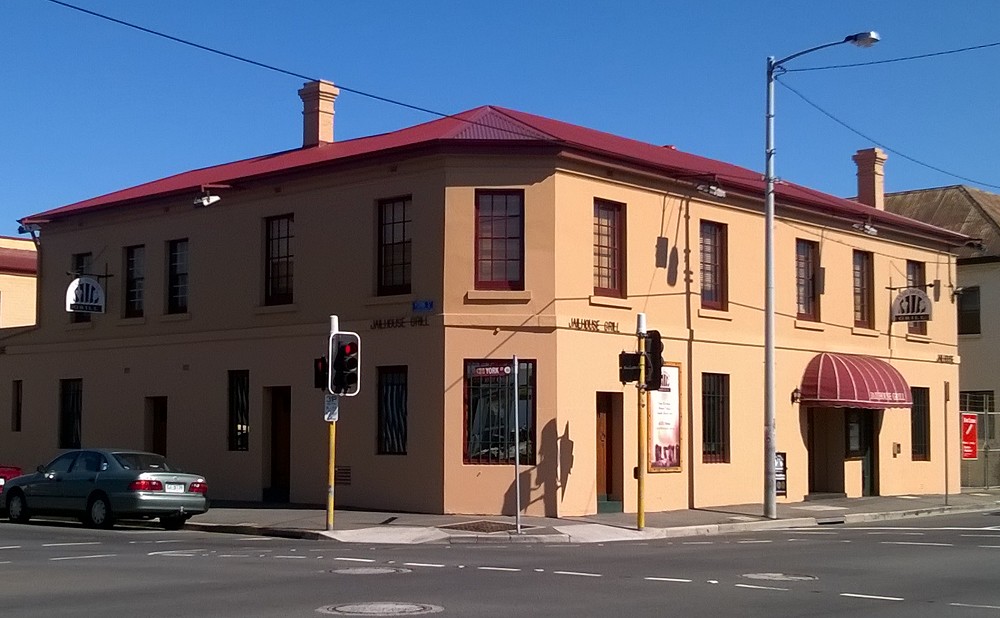North side of Brisbane Mall. Google Maps, approximate location.
Incomplete
– 1873 Coker
1873- Michael Cleary
-1883- William Throw
1886 Changed
-1890- George William Barber, International Hotel, Brisbane-street
International Hotel, 1891
Courtyard, 1891
(old links, might not work)
International Hotel, 1891
From “Quarterly Licensing Meeting”
NEW LICENCE.
Thomas Coker. In respect of the house situate in Brisbane-street, and to be called the “International Hotel.”
Mr Superintendent Coulter said he had examined the premises, the alterations in which had just been completed. The hotel would consist of thirty-seven rooms, and would afford more accommodation and of a better class than any other hotel in town.
Mr Adye Douglas, who represented the applicant, said that the premises were doubtless well-known to all the magistrates present. The hotel would be of a first-class character and could not come under the category of in-creasing the number of “drinking houses” in town. The applicant, Mr Coker, was well-known in Victoria where he had long success-fully conducted a good hotel. He believed it was Mr Coker’s intention to start a similar hotel in Hobart Town. In reply to Mr Turnbull, Mr Douglas said the hotel here would be conducted under Mr Coker’s personal supervision.
Mr Mason was of opinion that the “International” would be just the class of hotel required to put an end to inferior houses.
There being no opposition; the licence was granted.
Launceston Examiner,2 May 1871
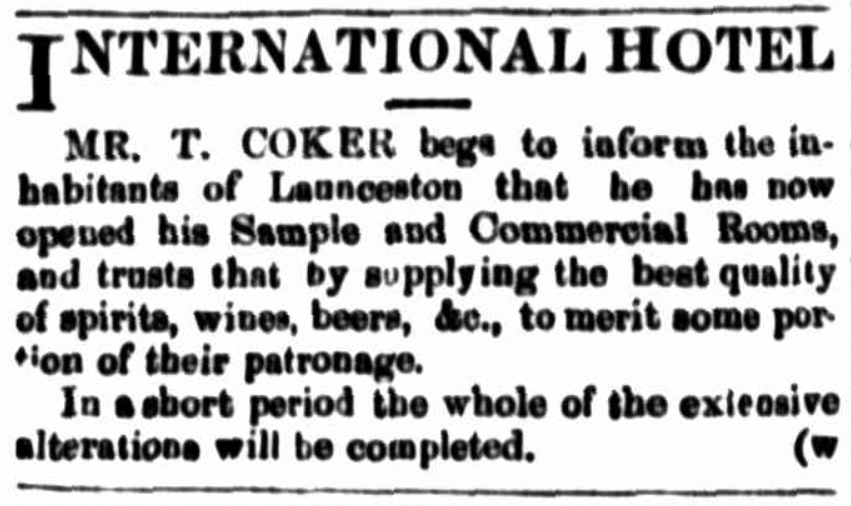
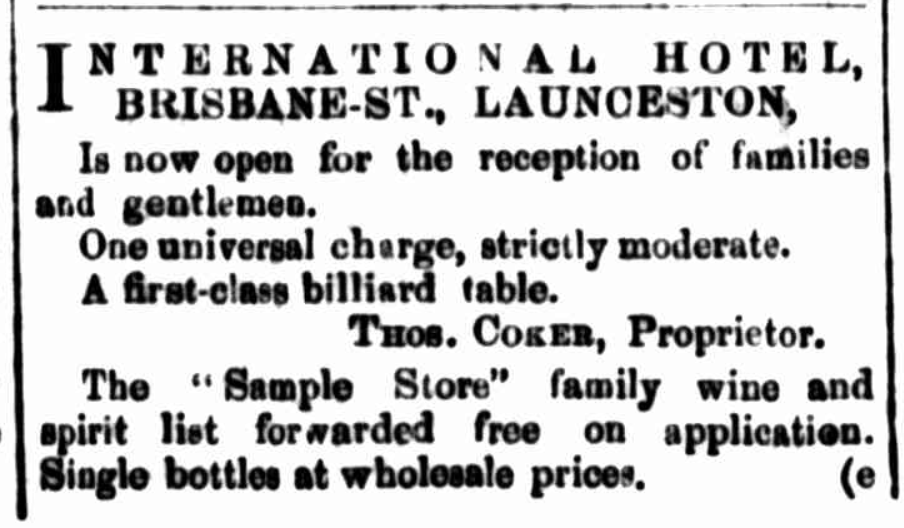
Billiard License.— A billiard license was granted to Mr Thomas Cokcr, of the International Hotel, until the end of the year.
Cornwall Chronicle, 28 August 1871
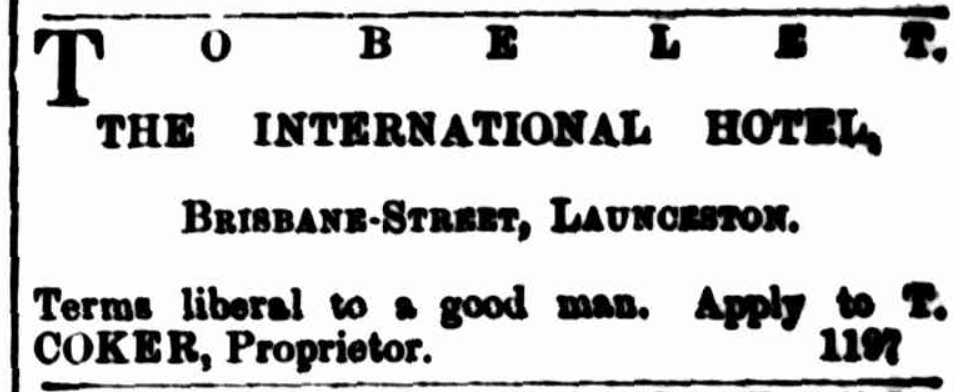
Colonel Shaw’s lectures — excellent though they be — have not prevented the publicans preparing as well as other sinners some acceptable offerings for Christmas. The manager at the International. Hotel has actually offered bottles containing Reisling, Mosel Mousseu, Pedro Xinenes (whoever he is), geneva, rum, brandy, “Scotch whuskey,” the real “Glenlivet,” and other terrible alcoholic productions by the bottle, at reduced prices, during the Christmas holidays. And these bottles containing such noxious ingredients are decorated with ferns, real holly with the red berries on, and are made to look very cool, tempting, and harmless.
The Tasmanian, 30 December 1871
CHAPMAN’S BAND AND CONCERT!
This splendid band performed in the courtyard of the International Hotel from 8 to 10 o’clock on Monday evening, but the crowd made so free by stopping up the gateway and thoroughfare on the foot path it was found necessary to close the massive gates–the band continuing to play inside.
The Tasmanian, 10 February 1872
The International Hotel. — This hotel, the largest and most complete in the colony, has been taken by Mr M. A. Cleary, of the Cornwall Hotel. The Cornwall is, we understand to be disestablished, and converted into a chemist’s and druggist’s shop. Mr Cleary has succeeded in attracting a good hotel business to quite a new house, the Cornwall, and he is therefore the more likely to succeed in conducting the larger adjoining establishment, the International Hotel.
Cornwall Chronicle, 4 April 1873
“THE INTERNATIONAL.” We understand it is probable that Mr M.A. Cleary will take this admirable hotel in succession to Mr Coker. Should this arrangement be carried out, the Cornwall Hotel, in conducting which Mr Cleary has became favorably known, will once more revert to its original character, that of on ordinary shop.
Examiner, 5 April 1873
Payment of Wages.-Thomas Haines proceeded against William Ignatius Thrower, of the International Hotel, to recover £10 14s alleged to be due to him as wages. Thomas Haines stated he was engaged in Melbourne by a Mrs Brown to come to Launceston at a salary of £1 per week, as waiter in the defendant’s hotel ; he produced the agreement drawn up for him by Mrs Brown for three months ; he came to Launceston, his fare being paid optionally by the defendant, and commenced work on the 12th July; after working for nine days Mr Thrower gave him a week’s notice to quit, which witness refused to take ; he left however when the week expired, and asked for the money due to him ; all that was offered was 6s for a week and two days’ work, £1 being deducted for the fare from Melbourne. Witness sued for wages due for the three as months, as per agreement. William Ignatius Thrower asserted he gave Mrs Brown no authority to engage the complainant for three months; the merely sent her a telegram as follows:-“Send by Mangana competent waiter, unmarried ; £1 per week; dress coat indispensable;” witness had agreed with the complainant that there should be a week’s notice on either side; previous to leaving the plaintiff was not a competent waiter, and had refused to wear his dress coat at table on several occasions. The Bench decided to dismiss the case.
Examiner, 3 August 1881
Hotel Changes. — The present season, though a dull one, is only the harbinger of more stirring times, if we may judge from the high prices at which several hotels in Launceston have of late changed hands. The Launceston Hotel, which was last year sold for £6500, has passed into the hands of Mr J. Huston, late of the Criterion Hotel, for £7500. This sum includes a new building in course of erection at the rear of the hotel, in place of the old wooden portion of the hotel that used to exist at the back of the premises. The lease of the Criterion Hotel has passed into the hands of Mr A. Deleuse at a good rental, and now the old Brisbane Hotel will lose the owner who has so long conducted it, Mr J. W. Simmons having sold it to Mr E. H. Panton for £7000, including the fittings, though exclusive of the furniture, and in another month will vacate it. His departure will make the hotel seem strange to those who have frequented it for many years past, while it will also lose its present homely appearance, and be transferred into a more modern-looking hotel by means of a verandah and balcony in front and extensive additions at the rear where the present yard is. A further change will be made known to-day regarding another leading hotel, the International, in the same street, Five tenders have been received by the trustees, Messrs. Douglas, Collins, and Davis, for the lease of the hotel, and these will be opened and the successful tenderer selected to-day. In George-street, Mr J. Edwards, formerly landlord of the Globe Hotel, has this week entered on a lease of the Royal Exchange Hotel, and other changes are reported as likely to take place.
Daily Telegraph, 21 May 1886
